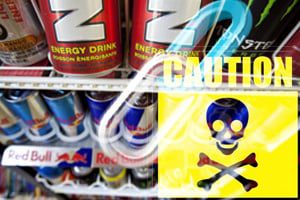
U.S. regulators are looking into the potential dangers associated with highly-caffeinated drinks such as Red Bull, Monster Energy, and 5-Hour Energy. Regulators will be looking into drinks made by a number manufacturers, including Monster Beverage Corp. and Living Essentials LLC, said Bloomberg.com. The U.S. Food and Drug Administration (FDA) is utilizing outside advisers for the […]
 U.S. regulators are looking into the potential dangers associated with highly-caffeinated drinks such as Red Bull, Monster Energy, and 5-Hour Energy.
U.S. regulators are looking into the potential dangers associated with highly-caffeinated drinks such as Red Bull, Monster Energy, and 5-Hour Energy.
Regulators will be looking into drinks made by a number manufacturers, including Monster Beverage Corp. and Living Essentials LLC, said Bloomberg.com. The U.S. Food and Drug Administration (FDA) is utilizing outside advisers for the review following a number of deaths linked to the drinks and wants to determine if the drinks can cause harm when consumed in excess, by young people, or by people who have pre-existing heart conditions, said Bloomberg.com, citing a letter the agency wrote to Senator Dick Durbin (Democrat-Illinois).
The outcome of the review may lead to regulation of the drinks’ use or labeling of the products, said Bloomberg.com. The agency also said that it will look into the other ingredients in the drinks, in addition to caffeine, to determine their safety, but did say it had not seen problems with the drinks’ other two key additives, taurine and guarana, Bloomberg.com said.
Energy drinks typically contain other stimulants, such as guarana and taurine, which are additives that claim to be all natural and, like other additives found in supplements, they are not subject to FDA regulation. There is not much credible data to show these products and ingredients are safe for human consumption or what levels are considered safe. Energy drink labels claim the products do not contain more caffeine than a typical cup of coffee, according to a prior Washington Post report; however, with no appropriate regulations, there is insufficient available evidence to validate those claims.
“I am glad to see that the FDA is undertaking a review but more needs to be done and quickly,” senators Durbin and Richard Blumenthal (Democrat-Connecticut), said in a statement. “For instance, FDA can and should take action now to regulate energy drinks that are marketed as beverages.”
A 12-ounce soda usually contains about 71 milligrams of caffeine, which the FDA considers safe. Caffeine in energy drinks typically ranges from 160 to 500 milligrams per serving, according to an FDA letter this August, written in response to Senator Durbin’s request for increased regulation of the products, said Bloomberg.com.
We recently wrote that the FDA posted information on 21 reports it has received since 2004 regarding the energy drink, Red Bull. Some reports mentioned hospitalizations for cardiac issues and vomiting. Meanwhile, the maker of Red Bull issued a statement that, “As the FDA stated, ‘the existence of an adverse event report does not necessarily mean that the product identified in the report actually caused the adverse event’.” Red Bull maintains its beverages are safe, said The New York Times.
The FDA also recently confirmed or released information on 18 filings involving deaths and over 150 other filings involving injuries that mentioned one of four popular energy drinks: Red Bull, Monster Energy, Rockstar, and 5-Hour Energy, said The New York Times. Yet, a federal report revealed that over 13,000 emergency room visits in 2009 all mentioned an energy drink as a possible cause.
Based on FDA records and a prior interview between an agency official and The New York Times, 13 other deaths in the past four years may be related to the 5-Hour Energy drink. Unlike other energy drinks packaged as traditional beverages, the 5-Hour Energy drink is a super-caffeinated, 2-ounce “energy shot.” The New York Times previously noted that, since 2009, 5-Hour Energy was discussed in about 90 FDA filings, including more than 30 reports that involved significant or life-threatening injuries, such as heart attacks and convulsions. A spontaneous abortion was involved one case. Also, a review of a summary of agency records made by the media outlet revealed that, in October 2012, the FDA received five filings concerning deaths associated with yet, another, energy drink, Monster Energy.


